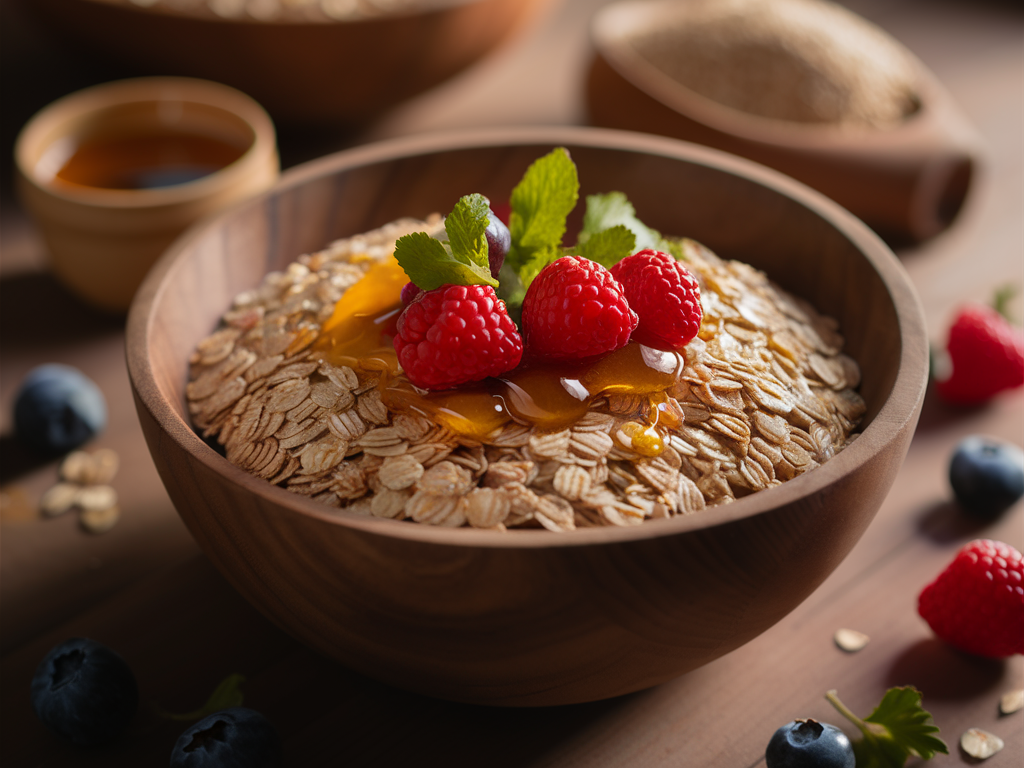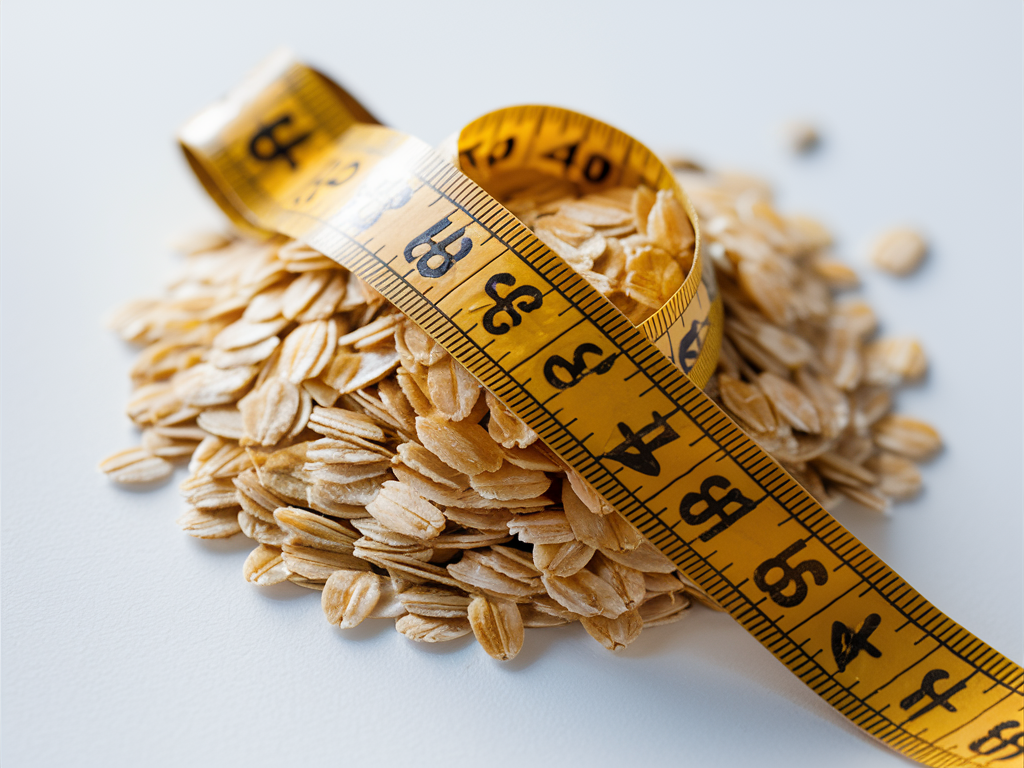Oats have earned their reputation as a nutritional powerhouse, becoming a staple in health-conscious diets worldwide. These humble grains pack an impressive array of nutrients, bioactive compounds, and fiber that deliver remarkable health benefits. While many consider oats simply a breakfast staple, scientific research reveals they’re much more – a versatile superfood with profound effects on multiple aspects of human health. This comprehensive guide explores 15 evidence-backed benefits that might convince you to incorporate oats into your daily eating routine.

1. Rich in Antioxidants
Oats contain unique antioxidants called avenanthramides, which are rarely found in other foods. These powerful compounds help fight inflammation and oxidative stress in the body. Research published in the Journal of Nutrition demonstrates that avenanthramides can prevent free radical damage to LDL cholesterol, potentially reducing cardiovascular disease risk. These antioxidants also inhibit inflammatory cytokines, providing cellular protection that may help prevent chronic diseases. Regular consumption of oats delivers these protective compounds in amounts sufficient to create measurable anti-inflammatory effects.
2. Helps Control Blood Sugar
The beta-glucan fiber in oats creates a gel-like substance in the digestive tract that slows down carbohydrate absorption and prevents blood sugar spikes. A meta-analysis published in Nutrients found that oat consumption significantly improved insulin sensitivity and glycemic control. For individuals with type 2 diabetes, incorporating oats into breakfast can reduce post-meal blood glucose levels by up to 30%. Even for those without diabetes, this blood sugar regulation promotes stable energy levels and reduces cravings throughout the day.
3. Lowers Cholesterol Levels
Beta-glucan fiber in oats effectively binds to cholesterol-rich bile acids in the intestine and removes them from the body. Clinical studies have consistently shown that consuming 3g of beta-glucan daily (about 100g of oats) can reduce LDL “bad” cholesterol by 5-10% without affecting HDL “good” cholesterol. The FDA has authorized a health claim that the soluble fiber in oats, as part of a diet low in saturated fat and cholesterol, may reduce heart disease risk. Research in the British Journal of Nutrition confirms that regular oat consumption leads to meaningful improvements in lipid profiles.
4. Supports Weight Management
Oats promote satiety—the feeling of fullness after eating—better than many other breakfast options. A study in the Journal of the American College of Nutrition found that participants who ate oatmeal felt fuller longer and consumed fewer calories at lunch compared to those who ate ready-to-eat breakfast cereal. The beta-glucan fiber in oats delays stomach emptying and increases peptide YY, a hormone that reduces appetite. Additionally, the thermal effect of digesting oats may slightly boost metabolic rate, further supporting weight management efforts.

5. Promotes Digestive Health
With approximately 10.6g of fiber per 100g serving, oats provide both soluble and insoluble fiber that support digestive function. The insoluble fiber increases stool bulk and speeds intestinal transit, reducing constipation risk. Meanwhile, soluble fiber serves as a prebiotic, nourishing beneficial gut bacteria. Research published in the British Journal of Nutrition shows that oat consumption increases the production of butyrate, a short-chain fatty acid that supports colon health and may reduce inflammatory bowel disease symptoms. Regular oat intake has been linked to a 30% lower risk of digestive disorders.
6. Reduces Heart Disease Risk
Oats provide comprehensive heart protection through multiple mechanisms. Beyond cholesterol reduction, they help regulate blood pressure, improve endothelial function, and reduce inflammation—all critical factors in cardiovascular health. A 10-year study published in JAMA Internal Medicine found that people consuming whole grains like oats daily had a 29% lower risk of heart disease compared to those rarely eating whole grains. The combination of beta-glucan, antioxidants, and beneficial plant compounds creates a synergistic effect that supports overall heart function and vascular health.
7. Enhances Immune Function
The beta-glucan fiber in oats doesn’t just benefit digestion and heart health—it’s also a potent immune system modulator. Research in the Journal of Nutritional Biochemistry demonstrates that beta-glucans activate macrophages, neutrophils, and natural killer cells, enhancing the body’s ability to fight infections. Regular oat consumption has been associated with reduced incidence of upper respiratory tract infections and faster recovery times. These immune benefits appear particularly strong during winter months when seasonal illnesses peak, making oats a valuable addition to preventative nutrition.
8. Provides Sustainable Energy
Unlike refined carbohydrates that cause energy crashes, oats deliver sustained energy through their complex carbohydrate structure. The combination of soluble fiber and slow-digesting starches creates a steady glucose release that fuels the body and brain for hours. Athletes particularly benefit from this property—studies in the Journal of the International Society of Sports Nutrition show improved endurance when oats are consumed before exercise. The protein content in oats (approximately 13g per 100g) further contributes to their energy-sustaining properties by supporting muscle maintenance.
9. Contains Essential Nutrients
Oats deliver an impressive nutrient profile, containing manganese, phosphorus, magnesium, copper, iron, zinc, folate, vitamin B1 (thiamin), and vitamin B5 (pantothenic acid). A single serving provides significant percentages of daily requirements for these essential nutrients. What makes oats particularly valuable is the bioavailability of these nutrients—research indicates that mineral absorption from oats exceeds that of many other grains due to lower phytic acid levels. The nutrient density of oats far surpasses most processed breakfast cereals, making them an efficient way to meet daily nutritional needs.
10. Supports Skin Health
The skin benefits of oats extend beyond traditional topical applications in bath products and lotions. Consumed internally, the antioxidants, zinc, and silica in oats support collagen formation and skin repair from within. Clinical studies published in Nutrients show that the compounds in oats can reduce inflammation associated with various skin conditions, including eczema and dermatitis. The avenanthramides in oats have been shown to reduce itching and irritation while supporting the skin’s moisture barrier. Regular consumption may help protect against UV damage and premature skin aging.
11. May Reduce Cancer Risk
Multiple compounds in oats exhibit potential cancer-protective effects. The antioxidants neutralize free radicals that can damage DNA and initiate cancer development. The fiber content, particularly in the colon, may reduce cancer risk by speeding toxin elimination and feeding beneficial gut bacteria that produce protective compounds. A comprehensive review in the British Journal of Nutrition found that higher whole grain consumption, including oats, was associated with a 15-21% lower risk of colorectal cancer. The phytochemicals in oats may also inhibit the proliferation of cancer cells, as demonstrated in laboratory studies.

12. Helps Manage Stress and Improve Sleep
Oats contain compounds that support neurological function and may help reduce stress and improve sleep quality. They’re naturally rich in melatonin and tryptophan, which play roles in sleep regulation. The B vitamins in oats support the nervous system and help regulate mood. Research published in the Journal of Psychopharmacology suggests that the steady glucose release from complex carbohydrates in oats helps maintain stable serotonin production, potentially reducing anxiety and supporting emotional balance. Some studies indicate that oat consumption before bedtime may improve sleep onset and quality.
13. Supports Bone Health
The mineral content of oats contributes significantly to bone health maintenance. Oats provide calcium, phosphorus, magnesium, manganese, and zinc—all critical for bone formation and density. A study in the Journal of Nutrition in Gerontology and Geriatrics found that regular whole grain consumption, including oats, was associated with better bone mineral density in older adults. The alkaline-forming properties of oats may also help prevent calcium leaching from bones, a benefit particularly important for postmenopausal women and aging adults at risk for osteoporosis.
14. Versatile and Easy to Incorporate
Unlike many superfoods that require special preparation, oats are remarkably versatile and simple to use. Beyond traditional oatmeal, they can be incorporated into smoothies, baked goods, granola, energy bars, and even savory dishes like meatloaf or as a coating for fish or chicken. Overnight oats provide a time-saving breakfast option that requires no morning preparation. Steel-cut, rolled, quick-cooking, and instant varieties offer options for different time constraints and texture preferences, making it easy for anyone to find an enjoyable way to incorporate oats into their diet.
15. Cost-Effective Nutrition
When analyzing nutritional value per dollar, oats consistently rank among the most economical superfoods available. Compared to similar nutrient-dense foods like quinoa, chia seeds, or specialty grains, oats provide comparable benefits at a fraction of the cost. A month’s supply of daily oats costs less than a single meal at most restaurants. Additionally, oats have a long shelf life, especially when stored properly in airtight containers, reducing food waste and extending their economic value. This accessibility makes their exceptional nutritional benefits available across socioeconomic boundaries.
Conclusion
The scientific evidence supporting oats as a nutritional powerhouse is both extensive and compelling. From controlling blood sugar and cholesterol to supporting heart health, weight management, digestion, immunity, and more, few foods offer such a wide spectrum of evidence-backed benefits. The versatility, affordability, and accessibility of oats make them an ideal daily addition to almost any diet.
To incorporate more oats into your routine, consider starting with a classic bowl of oatmeal enhanced with fruits and nuts, adding oat flour to baked goods, blending oats into smoothies, or preparing savory oat dishes as alternatives to rice or pasta. Even small, consistent additions of oats to your diet can deliver meaningful health improvements over time.
As scientific research continues to uncover the remarkable properties of this humble grain, one thing remains clear: oats represent one of the most powerful examples of how everyday food choices can transform health and well-being.
Additional Resources
For further reading on the scientific research behind oats’ health benefits:
- The American Journal of Clinical Nutrition: “Effect of oat intake on glycemic control and insulin sensitivity”
- The Journal of Nutrition: “Avenanthramides, polyphenols from oats, exhibit anti-inflammatory and anti-itch activity”
- British Journal of Nutrition: “Whole grain consumption and human health: an umbrella review”
Healthy Oat Recipes
- Berry Protein Overnight Oats
- Savory Mediterranean Oat Bowls
- Banana Oat Pancakes
- Homemade Granola Clusters
- Chocolate Peanut Butter Oat Energy Balls
Storage Tips
Store oats in airtight containers in a cool, dark place for up to one year. For longer storage, refrigeration or freezing can extend shelf life to 18-24 months. Purchase oats from retailers with high turnover to ensure freshness.

